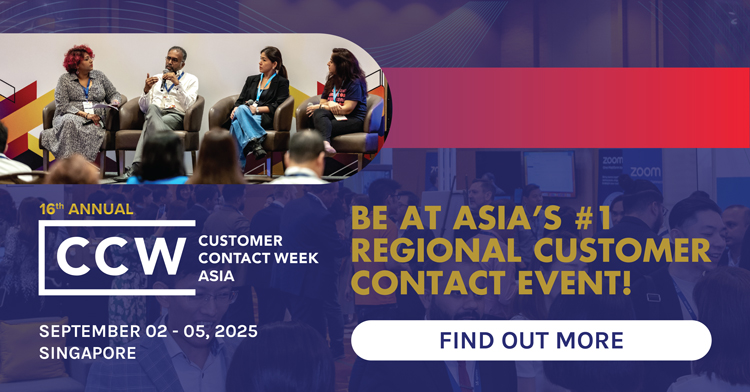Recently founded research and advisory firm, Crayon IQ, has released its inaugural “APAC Contact Centre CX Platforms With AI buyer’s Guide.” This report is the first independent, regional analysis to assess and rank 17 major vendors, providing a local perspective on a market often dominated by North American research.
According to Audrey William, founder of Crayon IQ, global research and vendor rankings often fail to account for the unique challenges and opportunities of the Asia Pacific (APAC) market, leading to a significant disconnect for regional businesses. “Throughout my 25 years as an analyst, I’ve consistently observed that most industry reports and quadrants are heavily focused on North America. They often fail to capture the specific nuances of the Asia-Pacific market. I saw a real need to change that”.
“Many of these global reports feature vendors as ‘leaders’ who have little to no presence in key APAC markets like Australia, New Zealand, Japan, or Singapore. This disconnect led to frequent feedback from end-users, who told me they needed a local, independent resource. That’s how the idea for this buyer’s guide was born—to provide contact centre decision-makers in the APAC region with a truly relevant and practical tool.
Unique challenges in the APAC market
The APAC market presents distinct nuances that global frameworks often overlook. While cloud contact centre adoption is high in Australia and New Zealand, approximately 60% of the rest of the region remains on on-premise or hybrid architectures. William highlights, “These contact centres, many of which are in mission-critical industries like government, defense, healthcare, mining, and oil and gas, are often governed by strict regulations. They need reliable voice solutions and are more comfortable with their current architecture, which they see as essential for meeting their obligations to citizens, especially in the event of a disaster”.
Localisation is also crucial. “A one-size-fits-all approach to deployment simply doesn’t work across a region as diverse as APAC. Success often hinges on a vendor’s ability to partner with local entities in countries like Indonesia, Malaysia, and Japan”.

“Furthermore, with the rise of voice AI, solutions must have high accuracy in multiple languages, including Bahasa, Mandarin, and Thai. Local partners are beginning to develop specialized large language models to work alongside international vendors, ensuring solutions are not only functional but also culturally and linguistically relevant”.
The rise of hyperscalers and market consolidation
The next 12 to 24 months are poised for significant change, driven by the acceleration of hyperscalers into the CX landscape. William observes,“The hyperscalers—specifically AWS, Microsoft, and Google—are poised for significant growth in the Asia-Pacific (APAC) market. AWS has already had a successful year in the region, and we expect Microsoft and Google to become much stronger players over the next 12 months”.
“These companies have deep pockets, allowing them to invest heavily and innovate rapidly in AI. They are also winning over C-level executives because they already provide so many other cloud services and products. When the conversation turns to contact centres, executives are more inclined to look at these providers because AI is a key component that integrates across all the different tools and technologies they are already buying from a single hyperscaler”.

The AI race in the contact centre space is heating up, and we can expect more consolidation in the next year. There have already been some big acquisitions, such as NICE acquiring Cogigny and Genesys being acquired by Thoma Bravo, signaling this trend will only accelerate.
Separating AI hype from substance
With the market flooded with “AI” promises, executives need to ask tough questions to separate marketing spin from real substance. Instead of just asking what a solution can do, advises William,executives should ask for real business outcomes and concrete use cases. “Push vendors to provide a trial period to test the technology in a real-world environment. It’s also critical to inquire about how a vendor will help integrate disparate data sources to make an AI deployment successful, as this is often the most painful part of the process. For voice AI, specifically, ask about latency, jitter, and how the solution ensures a natural, human-like conversation flow”.
The human element and change management
Even with the rise of AI, the human factor remains paramount. Companies must focus on change management to ensure employees are empowered to work alongside AI, not replaced by it. “Every contact centre discussion is now a company-wide discussion, and change management is absolutely necessary. Enterprises must focus on working with the right partner to help them on this journey of change, where people remain the most important asset. The human factor is critical, but now we’re talking about humans working with AI. There’s a lot that existing call centre agents and CX team leaders need to get used to as they adopt new AI skills”.
“Contact centre agents who handle all our calls and complaints are, in fact, the greatest assets in any contact centre. I believe enterprises must empower them to work alongside these AI applications, tailor their roles, and make them feel important during this period of transformation.
About the report
The Crayon IQ APAC Contact Centre CX Platforms With AI Buyer’s Guide provides detailed assessments of 17 vendors with a presence in the region, including: 8×8, Avaya, AWS, Cisco, Dialpad, Genesys, Google, Microsoft, Mitel, NICE, RingCentral, Sprinklr, Talkdesk, Twilio, Verint, Vonage, and Zoom.
Each is ranked by its ability to deliver AI-enabled CX outcomes at enterprise and mid-market scale. Vendors were assessed on:
- Ability to translate AI into tangible business outcomes
- Platform capacity to generate insights using multiple methodologies
- Support for third-party AI integrations
- Ethical safeguards and compliance controls
The three authors of the guide include:
- Audrey William, Founder and Principal Analyst, Crayon IQ
- Michael Clark, Consulting Founder, CXTT
- David Stone, Founder, Method and Momentum

